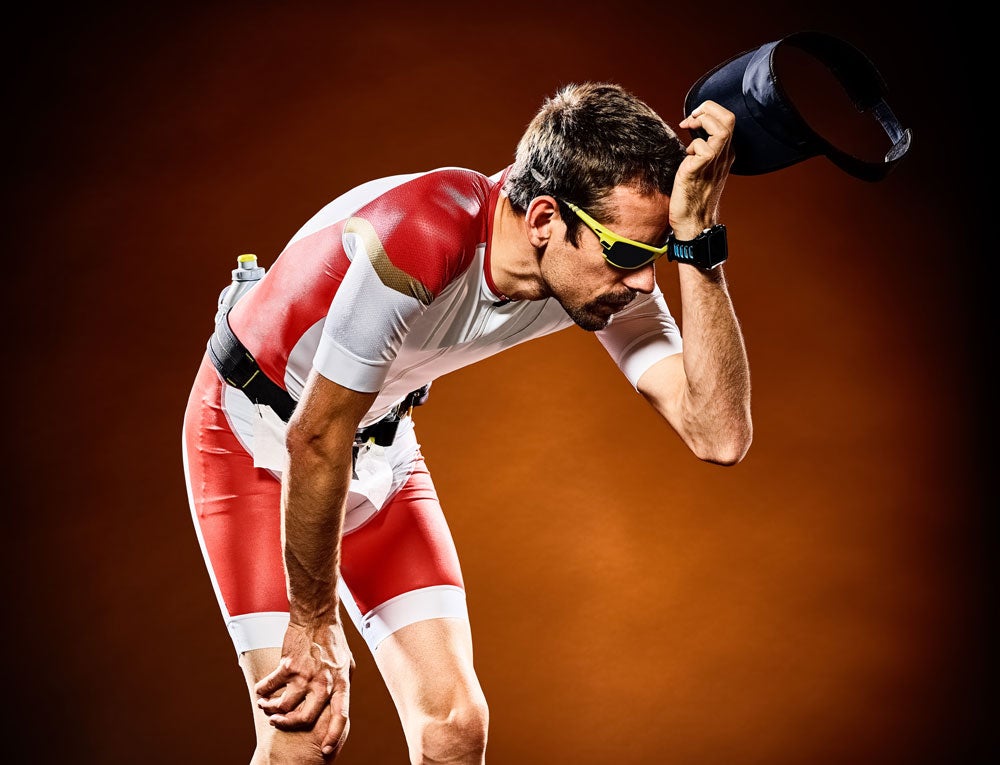Why Do I Need to Fuel When I Train and Race?

It depends on how long you’re racing. The point of taking in fuel—carbs, specifically—while racing and training is to stave off exhaustion and keep your muscles ring optimally. Your liver stores carbs in the form of a sugar called glycogen that your body uses to fuel your muscles while you swim, bike, and run. If you race in the morning without eating anything beforehand, you may have glycogen in your muscles, but you’ll start off with low liver glycogen stores. What that means: Between 90 minutes and two hours, you may experience symptoms of low blood sugar like exhaustion, weakness, dizziness, low motivation, and a grumpy mood. If you’re racing less than that, you might not suffer too badly, but studies have shown that even tricking your body into thinking it’s getting carb calories can give you a boost.
So why would anyone want to cut carbs if they’re such an important food for performance? In the endurance world, favoring fat for fuel can seem advantageous, largely because having to eat less during long efforts of two-plus hours is both convenient (less to think about and carry) and can help fend off any digestive discomfort.
Athletes can teach their bodies to become more efficient fat burners by “training low” on carbs. Popular methods include two-a-day sessions without carbohydrate intake between sessions, fasted workouts, carb restriction during workouts, and delaying carb intake in recovery.
As encouraging as it sounds to be a better fat-burner, studies have shown that training low doesn’t appear to improve performance. Doing a workout with low muscle and liver glycogen stores may favor fat metabolism, but if you can’t complete high-quality training sessions on a consistent basis, you are simply exhausting your body by withholding nutrients while trying to support training demands.
The bottom line: If you want your body to go far (two hours hours-plus) and sustainably fast, it’s best to eat carbs before efforts when you want your body to perform at its best.